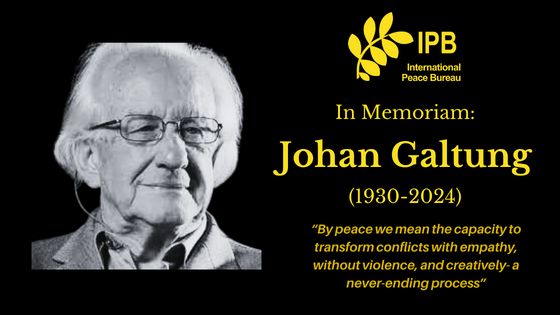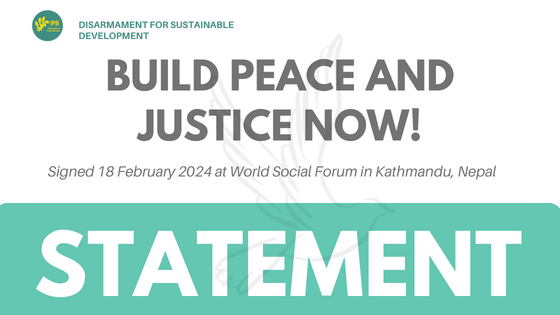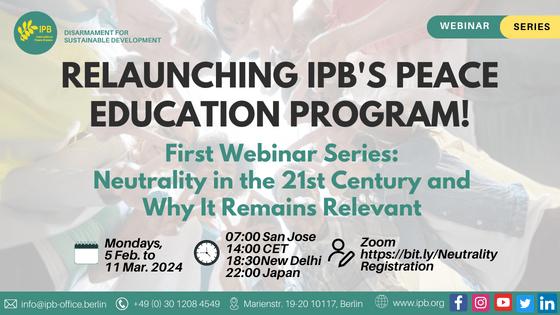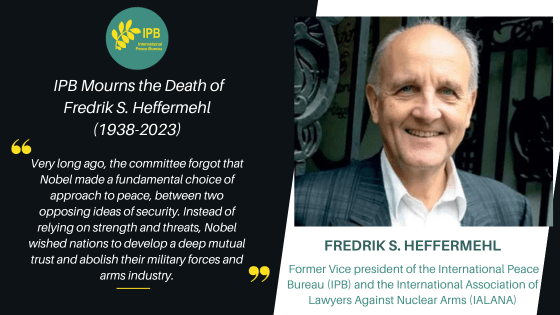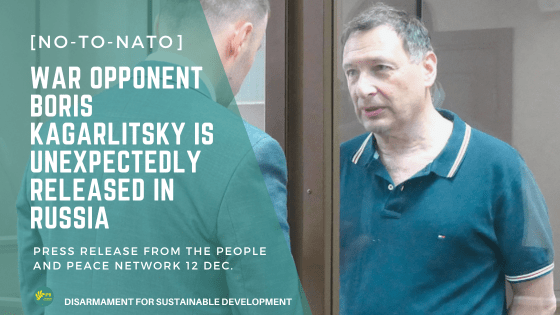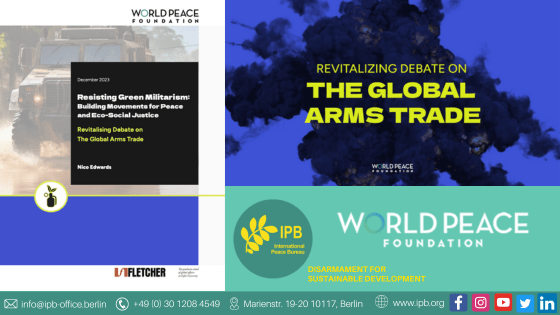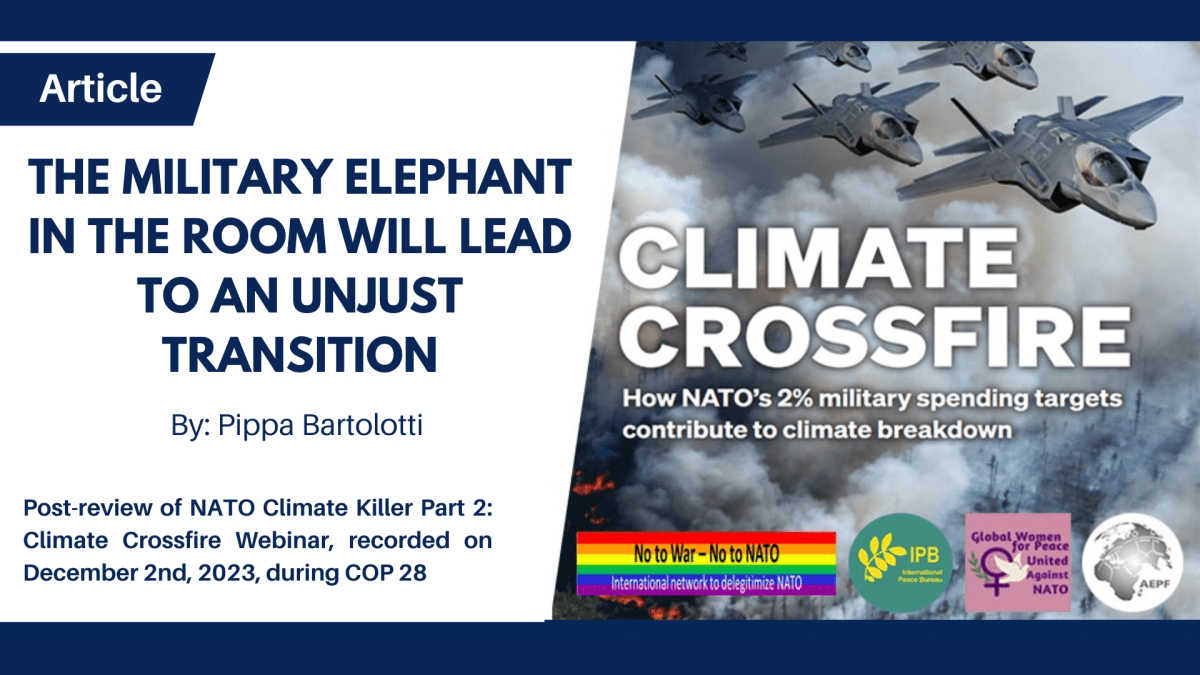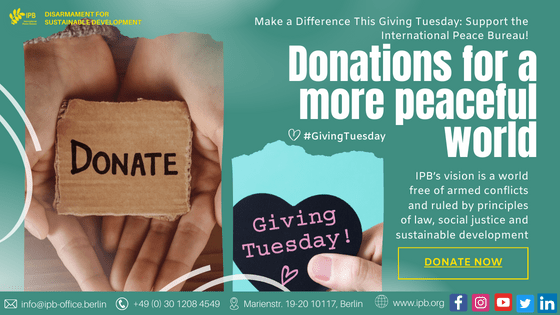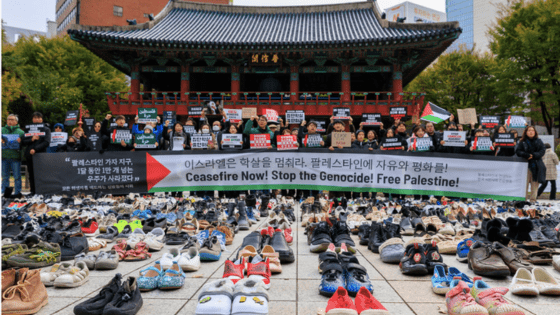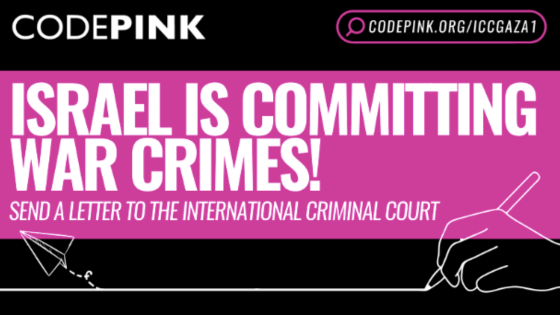With heavy hearts, we mourn the passing of Johan Galtung, a legacy in the field of peace and conflict studies. Johan was a visionary, a pioneer, and a relentless advocate for peace, justice, and human rights. His contributions to the theory and practice of conflict resolution have left an indelible mark on the world.
Continue reading “In Memoriam: Johan Galtung”News
BUILD PEACE AND JUSTICE NOW!
Statement signed at 18 February 2024 at World Social Forum in Kathmandu, Nepal
Nobody can doubt any longer that the multiple crises have deepened worldwide. Superpowers and market-oriented international institutions including the European Union, Russia, and the United States of America, NATO, the World Economic Forum and others have driven the world into a spiral of increasing competition, hate speech and sea of bloody wars, ethnic cleansing and genocide, economic and ecological disasters, and neocolonial injustices supported by increasingly authoritarian governments.
Continue reading “BUILD PEACE AND JUSTICE NOW!”Exciting News: We are relaunching IPB’s Peace Education Program!
We are thrilled to announce the relaunch of the International Peace Bureau’s (IPB) Peace Education Program, opening with an enriching series of webinars centered around the pivotal topic of neutrality in international relations.
Continue reading “Exciting News: We are relaunching IPB’s Peace Education Program!”Honoring the Legacy of Fredrik S. Heffermehl: A Voice for Peace and a Final Masterpiece
With heavy hearts, we announce the passing of Fredrik S. Heffermehl in late December 2023, a cherished member of our community and a relentless advocate for peace. As a distinguished lawyer, author, and former Vice President of the IPB, Heffermehl dedicated his life to the cause of peace and disarmament.
Fredrik’s involvement in peace activism extended beyond the IPB. He played a vital role as Vice President of IALANA (International Association of Lawyers Against Nuclear Arms) and led the Norwegian Peace Council from 1985 to 2000. His influential works, including “Peace is Possible” and “The Nobel Peace Prize. What Nobel Really Wanted,” have been translated into multiple languages, reflecting his global impact.
Continue reading “Honoring the Legacy of Fredrik S. Heffermehl: A Voice for Peace and a Final Masterpiece”War opponent Boris Kagarlitsky is unexpectedly released in Russia
Press release from the People and Peace Network 12 December 2023
War opponent Boris Kagarlitsky is unexpectedly released in Russia
Today, the Russian war opponent Boris Kagarlitsky was released from prison in the trial in Suktyvkar. Unlike many other prominent opponents of Russia’s war of aggression against Ukraine, Kagarlitsky did not flee the country but continued his advocacy work from Moscow. On July 25, he was arrested by the authorities on behalf of the FSB and taken to the remote Republic of Komi and its capital Sykthyvkar.
Kagarlitsky was accused of “justifying terrorism” in a video on YouTube channel Rabkor where he talked about the first explosion on the Crimean Bridge in the summer of 2022. This is according to Article 205.2 of the Russian Criminal Code on “justifying” terrorism committed “using mass media or electronic networks or information and telecommunications networks, including the Internet”, for which the penalty can be a fine of up to one million rubles or imprisonment from 5 to 7 years. The prosecutor requested 5.5 years in prison.
The case was based on a report written by Leonid Krasnoperov, a member of the City Duma of United Russia in the city of Ukhta in the Republic of Komi. Rabkor wrote in a Telegram post when the trial started yesterday, December 11: “Despite the well-known slowness of the Russian judiciary, which is capable of considering any case for years, it seems that the trial of Kagarlitsky could be concluded as early as tomorrow.”
Boris Kagarlitsky was able to leave the court today as a free man. He is, however, sentenced not to edit any media or website for two years and a fine of 6,000 dollars. “Miracles do happen even in the darkest times of political persecution, especially when backed by widespread material, moral and political support from around the world!” writes Rabkor in a comment. “The verdict opens the way for the cooperation between the climate and peace movement against oligarchs in East and West that Boris Kagarlitskij works for,” says Tord Björk, convener of the People and Peace Network’s communication and action group. Both Kagarlitsky and the Russian environmental movement continue to be labeled as foreign agents, but both the verdict and continued environmental protests in Russia, which have been particularly strong in Suktyvkar, show the hope of bringing together the fight for peace and the environment.
The result of the trial is surprising in a time of increased repression of all voices of peace. The success may be due to several forces working together in the campaign for Kagarlitsky as an important symbol of war resistance. One was a broad rally campaigning for the release of Boris and all political prisoners in Russia. That Kagarlitsky is the international best-known left-wing intellectual who was imprisoned both during the Soviet era, Yeltsin and Putin were grateful to highlight as a symbol. Another force was academics who cooperated with Kagarlitsky but are not as critical of Russia’s current actions as he is. One of these is Radika Desai, who raised the issue of Kagarlitsky in a conversation with Putin during a Valdai meeting. A third line has been the peace and environmental movement that stood up both for Kagarlitsky and conscientious objectors in both Russia, Belarus and Ukraine, something that opposition voices in Russia saw as a tactic that makes it easier for them to defend themselves.
In Sweden, the People and Peace Network has supported Kagarlitskij in a statement. At the Peace Fair in November arranged by i.a. Artists for Peace, Friends of the Earth, Women for Peace and the People and Peace Network, the issue of repression against war opponents in Russia, Belarus, Ukraine and the EU was an important theme. The People and Peace network has also participated in the peace movement’s international campaign for Boris Kagarlitskij and other war opponents in collaboration with social forum forces both from Russia and EU countries and the International Peace Bureau.
The people and peace network calls for continued support to Boris Kagarlitskij for payment of fines and to enable Rabkor to continue its operations. Donation Alerts (https://www.donationalerts.com/r/rabkortv) We also call for support for other political prisoners in Russia and work against repression in the East and West.
Tord Björk for the People and Peace Network communication and action group (Attached: )
International campaign for Kagarlitsky: https://freeboris.info
The statement of the People and Peace Network in Swedish: https://folkochfred.wordpress.com/2023/09/17/stoppa-repressionen-i-ost-och-vast/
On the International Peace Bureau website:
https://ipb.org/stop-the-repression-in-the-east-and-the-west/
About the environmental struggle in Suktyvkar and the Republic of Komi:
https://meduza.io/en/feature/2020/01/09/this-is-the-land-of-our-ancestors
Tord Björk email: tord.bjork@gmail.com, skype: tordbjork, tel: +46 (0)722 15 16 90, address: Kyrkängsbacken 8, 14135 Huddinge, Sweden
Joining Forces with the World Peace Foundation: Addressing the Intersection of Military, Climate, and Justice
We are honored to announce that IPB has been featured in the World Peace Foundation’s esteemed Movement Index. This recognition comes alongside the publication of their critical report, written by Nico Edwards, examining the complex interplay between military actions, climate change, and social justice.
The report, released in conjunction with the ongoing discussions at COP28, delves into the emerging concept of ‘Green Militarism.’ This term refers to the ways in which environmental challenges are increasingly becoming entangled with military responses, raising important questions about the future of eco-social policies and practices.
With the title “Resisting the Militarization of Eco-Social Crises,” the report is a compelling call to action. It invites us to reconsider our approaches to environmental challenges and to advocate for solutions that are not only effective but also just and equitable.
How You Can Help Amplify This Message:
- Retweet the Foundation’s Report: Show your support by retweeting the report from the World Peace Foundation’s Twitter account. Retweet Here
- Share the Report on Social Media: Use your platform to spread the word. You can use the suggested copy or create your own to highlight the importance of resisting green militarism. Read and Share the Report
- Use the Hashtag #RESISTgreenmilitarism: Including this hashtag in your posts will help in creating a unified voice and will enable the World Peace Foundation to easily retweet and share your support.
We are proud to be part of this critical conversation and are grateful for the World Peace Foundation’s efforts in shedding light on these pressing issues!
The military elephant in the room will lead to an unjust transition
Post-review of NATO Climate Killer Part 2: Climate Crossfire Webinar, recorded on December 2nd, 2023, during COP 28
Author: Pippa Bartolotti
As we navigate COP 28, this webinar addressed the pertinent issues of military spending and its environmental ramifications.
Ably introduced by the Canadian policy analyst IPB Vice President Steven Staples, this important webinar discussed in detail the links between the military and environmental degradation. Taking place on Day 4 of the COP 28 summit in Dubai, it was a thorough reality check.
The first speaker was Nick Buxton, Transnational Institute, who had some superb graphics and data to support his call to shrink the military, boost renewables and fund poorer nations in their efforts to combat the climate change they did not cause.
He explained that, in view of global emissions significantly exceeding the pledges to stay within 1.5 degrees of warming, (Paris Agreement 2015) we now only have a tiny window in which to take radical action. Shrinking the military was now critical is we are to deliver climate justice.
The gap between policy and action has increased. Those countries promising to make adjustments by 2050 were basically not planning to make any changes at all. In other words, 2050 pledges are the ‘do nothing’ option.
Nick pointed out that holding this COP in a petro-state such as the UAE was rather like asking the head of a tobacco company to launch an anti-smoking campaign – ludicrous. His research showed clearly that those countries with the highest military spending created the most emissions, and that fossil fuel expansion had been the real aim since the end of WW1 when the Ottoman Empire was carved up to reflect the places where oil pipelines were going. The US backed Israeli onslaught on Gaza in order to claim the gasfields off that coast are an ongoing example of this policy.
The global military spend in 2022 was $2.24 trillion. In 2028 it is expected to be $11.8 trillion. The richest countries spend 30 times more on their military than on supporting a survivable climate.
In 2015 £100 billion was promised to help poorer countries. Only half of that has been delivered to date, and that came late.
Russia spends $158b on the military, China $578b, NATO spends $2,327b – that is 55% of global military spending. Of the 2% of GDP spending goal expected from NATO countries, 20% is targeted to be spent on military equipment, thus enriching the military industrial complex.
Nick showed us a map pinpointing the 750+ US military bases across the world, most of which correlate closely with the infrastructure of resource extraction.
Every country now has Climate Security Plans. The trend is to see climate change as a security issue where the victims are seen as threats, where borders become militarised, where exploitation of the vulnerable is increased, and where any form of peaceful response is denied. Spending on borders alone is now twice the spend on climate finance. NATO is now in place to deal with the consequences of the unstable conditions they themselves have created.
The second speaker was Wendela de Vries of Stop Wapenhandle, has been looking at the lack of transparency and accountability of the military across the globe.
She spoke of hardliners evading the subject of emissions, of the NATO Arctic Command established in order to protect deep sea mining in the Arctic. Of how current discussion is fuelling a new cold war and how closely correlated military spending was to a rise in emissions.
Most military spending is now in equipment not personnel. There is not expected to be a rise in numbers of personnel. But expenditure on ships, tanks and weapons would increase.
The military carbon footprint as of 2021 was bigger than the worlds footprint from civil aviation.
Th US emissions are more than all other NATO countries combined. More than 70% of all military emissions come from the US. 50% is from the military and more than 20% is on weapons manufacture.
Future member contributions to NATO are scheduled to rise to 3% of GDP. This is important for the arms industry who want to consolidate long term contracts, but labor and environmental rights are being damaged in the upscaling of weapons production – largely being driven by the Ukraine war.
Wendela spoke of the greenwashing of military products, such as the fallacious term ‘sustainable defence’ being used to greenwash biofuels and synthetic fuels, both of which still require burning for energy, and which will not reduce emissions at all. In the case of biofuels, enormous amounts of land would be required to grow the feedstock, damaging ecosystems and compromising biodiversity. The military are not going to change their energy systems to electricity as that would make all their ships, tanks etc obsolete. Electric propulsion would require a full redesign, and as military hardware is expected to last 40 years, such a proposal is not entertained.
Nuclear, particularly the plethora of small reactors, will make it much more difficult to control the toxic waste, and is no solution at all.
The arms industry still has huge support, many people still believe that the military make the world a safer place, and that thinking has to change. We have to de-militarize to be more safe.
Some interesting points came out of the question and answer session at the end. There was discussion about health being at the heart of peace, that a peaceful world would enable a healthy and dignified life for all. Others were looking for some way out of our current trajectory of everlasting war where every problem looked like a nail, and needed a hammer to solve it.
There was concern that rich countries did not look after poor countries. On the whole the speakers were not optimistic for the future as we sink into dark circumstances in this crisis of all crises.
The real challenge is to put collaboration before competition, to find a different pathway, and to make war illegal. Hope remains with social movements and in the streets.
Co-organized by four esteemed organizations—the International Peace Bureau, Global Women’s United Against NATO, No to War, No to NATO, and the Asia-Europe People’s Forum—this series of webinars seek to provoke thoughtful dialogue and foster a deeper understanding of the complex interplay between militarism and the environment.
Watch the full Recording in IPB YouTube Page: https://www.youtube.com/watch?v=0axVq1alkkw&t=18s
It’s Giving Tuesday!
Support Peace this Giving Tuesday: Help the International Peace Bureau Create a Better World!
This Giving Tuesday, be part of a global generosity movement that has been inspiring action since 2012. Created as a day to encourage people to do good, GivingTuesday has evolved into a worldwide phenomenon celebrating radical generosity. Every year, millions come together to support causes they believe in, igniting change and fostering a spirit of giving.
Join us in this extraordinary movement by supporting our work, dedicated to promoting peace and sustainable development. Together, we can create a more peaceful, just, and sustainable world.
#GivingTuesday is not just about one day; it’s a commitment to making a difference year-round. Your support for the IPB on this special day contributes to a lasting impact on global peace and sustainability.
Your support will help us to continue to organize and mobilize our international peace network in activities such as:
- The Global Campaign on Military Spending
- The International Summit for Peace in Ukraine and Global Week of Action
- Educational and Action Webinars
- The 24-Hour Peace Wave
- Protection for Human Rights Activists
- And so much more!
Moreover, it will provide us with the necessary resources to expand the reach of our message of peace in the unprecedented difficulty of these moments.
Donate now and be a part of this global movement of generosity and hope! Thank you for sharing our belief that a more peaceful and better world is achievable.

#GivingTuesday #IPB #DisarmamentForPeace #SustainableDevelopment #DonateForPeace
Protest of the Shoes: Grieving Every Loss of Palestine
#ProtestoftheShoes: Grieving Every Loss of Palestine
Ceasefire Now! Stop the Genocide! Free Palestine!
In solidarity with the Korean Civil Society in Solidarity and Palestine led a movement, we support the Protest of the Shoes campaign. Learn more how you can continue the support through here: https://www.peoplepower21.org/english/1952104
The whole world is witnessing a genocide. From October 7 to today, more than 13,000 people have been killed in the Gaza Strip, 75% of the people killed are children, women, and elderly. The missing and injured persons are uncountable. More children have died in Gaza in the past month than have died in all conflict zones combined in the past year. The international community, including the UN General Assembly resolution, is calling for an immediate ceasefire from Israel, but the Israeli says there’s no ceasefire and continues to bomb.
On November 17th, 2,000 pairs of donated shoes were displayed in Bosingak Square, South Korea. A banner with the names and ages of the dead was also hung. On that day, the Urgent Action by the Korean Civil Society in Solidarity with Palestine led a movement.
Watch the video here: https://www.youtube.com/watch?v=LnqkJSN6Z38
Send a Letter to the ICC: Israel is Committing War Crimes!
Join CODEPINK in sending letters to the ICC urging prosecutor Karim Khan to investigate Israel’s war crimes in Gaza.
Since October 7, Israeli officials, including Prime Minister Benjamin Netanyahu, have made multiple statements inciting genocide in Palestine. Since the start of its attack on Gaza, Israel has committed war crimes and crimes against humanity, giving the International Criminal Court (ICC) jurisdiction over this case. The people of Gaza cannot bring this issue to the ICC themselves since Israel has repeatedly cut off electricity and telecommunications.
Support and sign the petition here: https://www.codepink.org/iccgaza1


